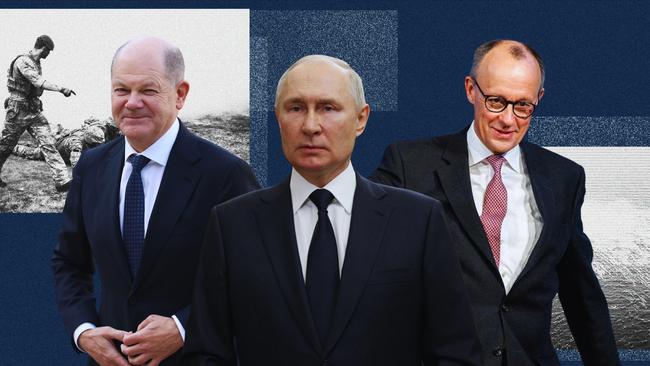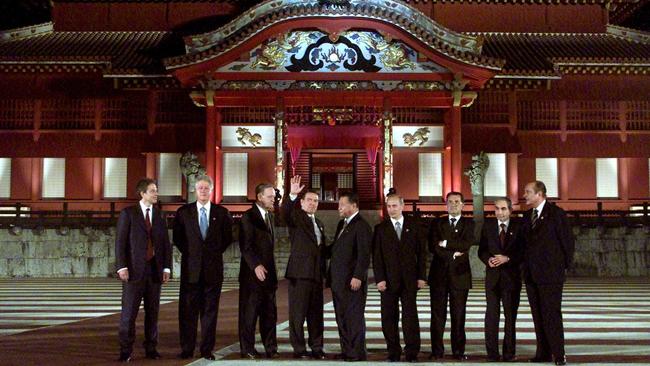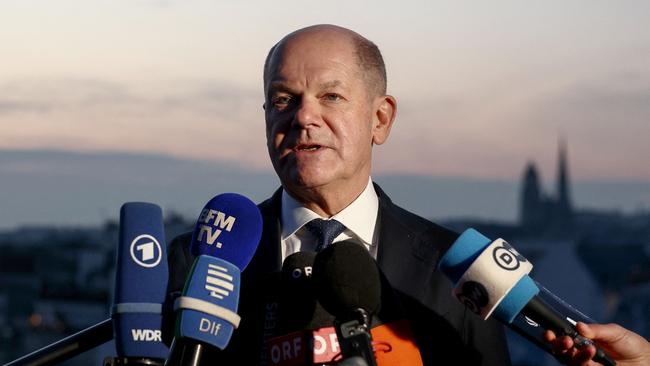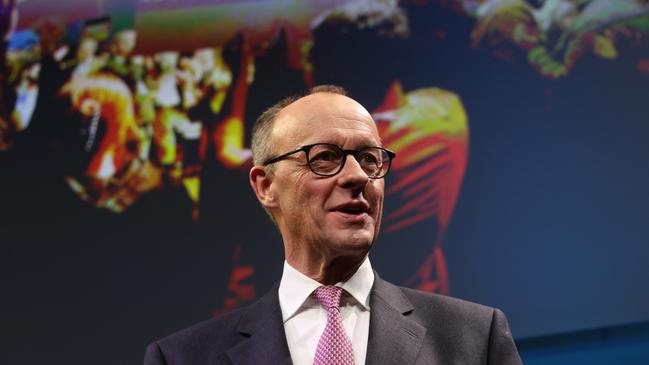Germany’s new leader must stand up to Putin

Schroder justified the decision with a simple logic: the German manufacturing industry needed cheap Russian gas because his own Social Democrat-Green coalition had set a timetable to phase out nuclear power. And coal mining had no future. “They [Russia] need oil and gas to pay for their budget,” he said in an interview. “And we need oil and gas to heat and keep the economy growing.” But what if that same Russian budget was being used to pulverise a neighbour? He never had an answer for that.
Schroder’s post-chancellorship jobs multiplied, taking in not only the (later sabotaged) Nord Stream 2 but also Rosneft, the Russian oil producer. And the friendship with Putin grew too. It had begun with a family visit to Putin’s home for the Russian Orthodox Christmas. They celebrated birthdays together and Putin helped Schroder adopt two Russian orphans.
This toxic chumminess survived Putin’s annexation of Crimea in 2014 and the full-scale invasion of Ukraine in 2022. Schroder, now 80, stayed publicly loyal, had some of his German honours withdrawn but still shapes Social Democratic reticence about facing off the Kremlin.

Olaf Scholz, the present chancellor and fellow Social Democrat, showed himself to be of this school on Monday when he resisted British arguments in favour of a European military contribution to a future peacekeeping force in Ukraine. In the Hanseatic equivalent of quivering rage, he declared: “It is completely premature and the completely wrong time to be having this discussion; I’m even a little irritated.” Decoded: Germany does not want to even contemplate an armed confrontation with Russian forces.

Scholz had started well enough by declaring a Zeitenwende, a paradigm shift, after the 2022 invasion. In practical terms, that meant ignoring the constitutional ban on supplying weapons to a conflict zone. His big contribution was to scale down energy purchases from Russia. However, as soon as the supply of infantry fighting vehicles and howitzers was requested, the German leader started to suggest it could draw a nuclear response from Putin.
As the German politician Norbert Rottgen writes in his frank new book Democracy and War, it broadcast to the public that Scholz accepted Putin’s threats as real. He was “kissing goodbye to the philosophy, politics and historic success of the West’s nuclear deterrence during the Cold War”. Should the West respond in this timid way to a nuclear North Korea or a near-nuclear Iran, there would be a dangerous shift in favour of states using nuclear threats as a matter of policy. Result: a perpetually unsafe Europe.
If Germany is to recover its poise - last seen under Helmut Schmidt and Helmut Kohl - it needs a strong, coherent leadership and the confidence to form, with allies, a non-deferential approach to Russian aggression. Elections this weekend will probably position the Christian Democrat Friedrich Merz as chancellor. Evidently, he understands some of the basic changes needed in the German economy and in relations with the new US administration and with France, Poland and Britain (probably in that order).

First, though, he will need to establish a coalition; on past form this could take 70 days or more. The second force is likely to be the hard-right Alternative for Germany (AfD). While there are convergences on migrant policy, it is unlikely Merz will end up with the AfD. My reservation about Merz governing with them is not that they are crypto-Nazis but rather that the party’s east German DNA may end up pointing the government towards an even more accommodating position on Putin.
The Christian Democrats together with their Bavarian sister party are polling at 30 per cent, the AfD at 20 per cent, the Social Democrats and Greens are roughly level-pegging at 15 per cent. One of the current coalition partners, the liberal Free Democrats, is just below the 5 per cent needed to gain parliamentary representation. The choice seems to be between a clear majority government that spans the conservatives and the hard right, or a not-so-grand and wobbly coalition with the exhausted Social Democrats - or a bundle of smaller parties who scrape it into parliament.
If Germany is to play an important and creative part, alongside Britain and Poland, in keeping Ukraine independent, self-supporting and safe, then coalitions with the AfD or Social Democrats should be excluded, since they are both likely to maintain the corrosive relationship with Putin.
So the question will be, how solid is Merz in his defence of a free Ukraine? What deals is he prepared to do with the smaller parties to form a government?
There are signals that he will try to come up with creative, collaborative solutions to Germany’s foreign policy bind. He was a leading light of the US-aligned Atlantic Bridge, has contacts in Washington and (crucially, a diplomat tells me) plays golf. Could he, rather than Keir Starmer, become Europe’s Trump whisperer? First, he has to win an election on Sunday, then find a government that lasts and, most importantly, he has to have the guts to stop a drift towards Putin appeasement.
The Times



A few weeks after Gerhard Schroder lost the chancellorship of Germany in 2005, Vladimir Putin rang on his mobile to offer him a job as head of the Nord Stream company that built two gas pipelines linking Russia with Germany. This invitation to be part of a strategic axis wasn’t a complete surprise: Schroder was Putin’s kind of socialist, from a poor background, but corporate-minded, sceptical about American power, a populist touch. Schroder, to no one’s surprise but America’s alarm, accepted the job.